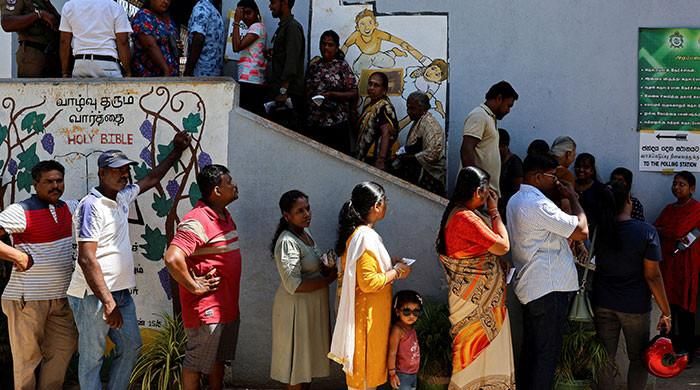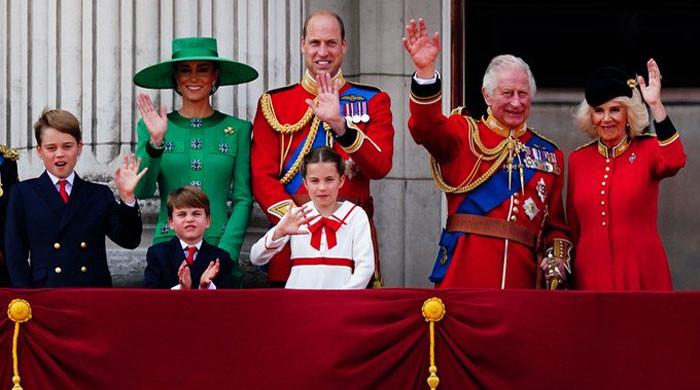- Ranil Wickremesinghe is fighting an uphill battle to secure another term in office.
- The island nation will hold elections for the first time since the economic collapse.
- Voters cast their ballots amid the deployment of a 63,000-strong police force.
COLOMBO: Sri Lanka began counting votes cast in the presidential election as voting ended on Saturday afternoon, an election body official said, as the cash-strapped island nation saw elections for the first time since economic collapse.
Islanders voted in an effective referendum on an unpopular International Monetary Fund austerity plan enacted after the island nation's unprecedented financial crisis.
President Ranil Wickremesinghe is fighting an uphill battle to win another mandate to continue austerity measures that have stabilized the economy and ended months of shortages of food, fuel and medicine.
His two years in office brought calm back to the streets after civil unrest sparked by the 2022 recession saw thousands storm the compound of his predecessor, who promptly fled the country.
“We must continue with reforms to end bankruptcies,” Wickremesinghe, 75, said at his final rally in Colombo this week.
“Decide whether you want to return to the time of terror or progress.”
But Wickremesinghe's tax hikes and other measures, imposed under the terms of a $2.9 billion IMF bailout, have left millions struggling to make ends meet.
He is expected to lose to one of two formidable opponents, including Anura Kumara Dissanayaka, the leader of a once-fringe Marxist party tarnished by its violent past.
The Sri Lanka crisis has proved an opportunity for Dissanayaka, 55, who has seen a surge in support based on his promise to change the island's “corrupt” political culture.
Opposition leader Sajith Premadasa, the son of a former president assassinated in 1993 during the country's decades-long civil war, is also expected to perform well.
“There are a significant number of voters who are trying to send a strong message… that they are very disappointed with the way this country has been run,” Murtaza Jafferjee of the Advocata think tank told AFP.
'We are not out of the woods'
More than 63,000 police officers were deployed to protect polling stations and counting centres, set up for more than 17 million eligible voters.
“We also have riot squads on standby in case there is trouble, but so far everything is calm,” police spokesman Nihal Talduwa said ahead of the election.
“In some areas we have had to deploy police to ensure that polling stations are safe from wild animals, especially wild elephants.”
A result is expected on Sunday, but the official result could be delayed if the race is close.
Schools were closed on Friday to be converted into polling stations, which will be staffed by more than 200,000 civil servants deployed to conduct the vote.
Economic issues dominated the eight-week campaign, with widespread public anger at the hardships endured since the peak of the crisis two years ago.
Official data showed Sri Lanka's poverty rate doubled to 25% between 2021 and 2022, adding more than 2.5 million people to those already living on less than $3.65 a day.
Experts warn that Sri Lanka's economy remains vulnerable and payments on the island's $46 billion external debt have yet to resume since the government defaulted in 2022.
The IMF said reforms implemented by Wickremesinghe's government were beginning to bear fruit and growth was slowly returning.
“A lot of progress has been made,” the IMF's Julie Kozack told reporters in Washington last week.
“But the country is not out of the woods yet.”












